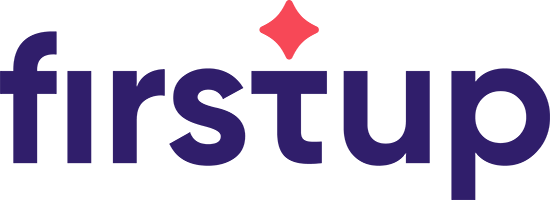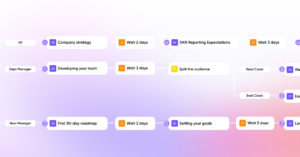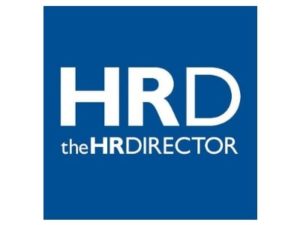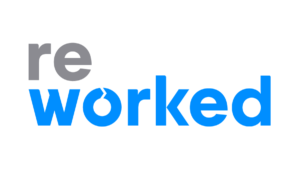The best businesses put their people first.
SocialChorus founder Nicole Alvino joins the Culture, Comms & Cocktails podcast to talk about what she’s seeing companies get right with their digital employee experience, and what they are still getting wrong.
“Nothing happens in business without people. And if leaders don’t invest in their people and all of their people, there’s no way that their business will thrive, especially in a COVID reality world.“
— Nicole Alvino
Nicole talks in-depth about what DEX (Digital Employee Experience) means to her, what it means for the industry, and why she believes leaders should focus on the digital employee experience:
- Hear the history of the SocialChorus journey from helping companies find people who could tell great stories on social media, to creating a platform that can help every worker feel connected to their company.
- Learn how forward-looking leaders are getting it right with a focus on employee wellness, from access to different services to the ability to be able to share with others.
- Nicole explains how important it is to meet employees where they are, especially if you have workers who are remote or hybrid workers, or employees out in front of guests or patients.
- Listen further to hear her break down the correlation between investment in people and the performance of an organization.
- To close out the episode, Nicole shares how it feels to partner with companies who maintain some of the largest workforces in the world to deliver on the digital employee experience.
Interested in learning more?
- Explore more about how to build a digital workplace that works for every employee.
- Learn how having a unified platform that lets you get messages to all of your employees can help you align your company.
Culture, Comms, & Cocktails Episode 48 Transcript
Chuck Gose: Hello, everyone. This is Culture, Comms, and Cocktails, the podcast with internal comms served straight up. I am your host, Chuck Gose, senior strategic advisor at SocialChorus. And on this episode of Culture, Comms, and Cocktails, we have Nicole Alvino, founder and chief strategy officer at SocialChorus. I say we finally have her on the episode, because it was finally me asking her to be on the episode. So, Nicole, welcome to the podcast.
Nicole Alvino: Thanks, Chuck. It’s true. I’ve been a long-time listener, first time guest, so very excited to be here.
Chuck Gose: Well shame on me for taking this long, but I think it’s the right time to have you on.
Nicole Alvino: I’ve been working up to it, so hopefully I won’t disappoint.
Chuck Gose: A few weeks back… Unless you worked at SocialChorus, you probably wouldn’t know this. We had our SCKO, which is our SocialChorus kickoff meeting. And during that time you had shared a bit of history of SocialChorus. So I think it’d be interesting for people to hear you share a bit about the SocialChorus journey, what we’ve been on, your own journey as part of that. And then, now where is that going? So sort of that Instagram meme, how it started, how it’s going. Let’s talk about the path SocialChorus has been on.
Nicole Alvino: Sure. So the journey started over a decade ago, and it started when we were helping companies find people who could tell great stories about their company externally on social media. So we started in that advocacy role. AT&T was actually our first client, and they’re still a client now and manage all of their communications on our platform. And what’s exciting about that evolution is, it’s really been the evolution of our company. So we quickly learned that you can’t ask your employees to shout from the rooftops how amazing things are unless they really feel supported and informed and connected to the company, its strategy, its culture, and its leaders. So for about the past five years, we’ve really been focused on creating a platform that can reach every single worker in a large organization to give them exactly what they need to feel connected to their company and that they do have a story that they can share at the dinner table or on LinkedIn if they so choose.
Chuck Gose: Yeah, I think that’s sometimes what gets forgotten about in this advocacy conversation, is that social media has taken over that, where really it’s just about employees knowing what to talk about, if they’re encouraged to talk about things going on at work. And certainly that’s still a big part of what we help organizations do. When I had introduced you I had said you were a founder, which, I think people are pretty clear about what that means, but also chief strategy officer. So for those listening, explain what does that mean, to be chief strategy officer at SocialChorus?
Nicole Alvino: Yeah, I think about it as, I get the opportunity to share externally the amazing work that everyone at SocialChorus does. So kind of three buckets. One is, I spend a ton of time with executives across our customer base and working with them on how our platform and solution can really help them deliver on their goals to provide a connected, unified digital employee experience, help drive their future of work initiatives. I also spend time with industry analysts and journalists to help educate them on this industry and what’s possible. And then the third piece is work with our partners, so whether it’s Microsoft ServiceNow, Citrix, Workday, across agencies and systems integrators, really about how together we can deliver on this digital employee experience that does provide a key component to the future of work.
Chuck Gose: And now focusing on the digital employee experience, something we’ve referred to as DEX out there, what does this mean to you, when we say digital employee experience? Also, what does this mean now as an opportunity for the industry?
Nicole Alvino: Yeah, I think when I think about the digital employee experience or what we hope to deliver, simplistically, it’s personalized information, exactly what you need, Chuck, delivered to you where you need it, when you want it, period. So for a wired worker… You and I are both in front of screens all day. There’s so much information being thrown at us in different places, pings all the time. It’s just too much, especially in a remote situation. So for those wired workers, it’s about the signal through the noise and delivering me what I need. So think about what Amazon has done for our consumer experience. Amazon knows what I need before I know I need it. They’re reminding me on my mobile app, in my email, wherever I am, in media, and that experience comes to me. We’re really doing that same for the workplace.
And then when you think about actually the largest section of the workforce, what we call the desk-less workforce, or unwired colleagues, that’s about 75% of the global workforce, and often they don’t have any access. So they don’t have a digital employee experience, and that means they have no way to connect to leaders, connect to other colleagues, to connect to even the systems that they need. Can they easily get a PTO balance, swap a shift schedule, check on a new benefit? So all of those things together provide that unified, personalized digital employee experience.
Chuck Gose: If you say swap a shift schedule like five times too fast, that’s a tricky one. And I think about it, too, from… When you talk about digital employee experience, for a lot of us that is the employee experience now, being in a pandemic and people working remotely. But you make a great point. We often live in our own echo chambers out there. Three fourths of the workers out there do not live their lives in front of screens like you and I do for our workday, so they are out. And what I often see when we roll these platforms out to organizations, for those employees who might have been there 20 years or 20 days, this is their first chance to ever participate in that experience. So often they’ve just been the recipient of an experience. Now they can participate in that experience. So what do you see, the people that are out there defining this digital employee experience for all employees, desk-less or desk-based, what are people getting right about it? But also, what are the things you see that they’re getting wrong about it?
Nicole Alvino: Yeah. I think the thing that I’m seeing a shift, and I’m sure you are too, in getting right is people are considering their entire workforce, whether that means part-time workers, contractors, even furloughed workers that we’ve seen in the pandemic, this notion that regardless of type of work or pay grade, it doesn’t matter. Every worker is important, and they deserve to have a digital employee experience and that direct connection. So I think that is the piece that I’m seeing especially forward-looking leaders getting right. I think that I’m seeing a big trend around employee wellness and being able to provide that, whether it’s access to different services and just the ability to be able to share. So I think those are things that are working well.
I think the thing that we’re still getting wrong in some places is trying to force everybody to one place, whether it’s one intranet or one location. That just doesn’t work, especially if you have workers who are remote or hybrid or on the production line or out in front of guests or patients. And what we’ve learned over the decade is we have to meet employees where they are. The only way to get 100% reach of the workforce, which in our view is the only way to provide a true digital employee experience, is we have to meet people where they are, inside of teams, inside of Slack, inside of Jira inside of email, mobile, desktop, et cetera. I have different preferences for even different times of the day. And so just like we get these experiences in our personal life, it should be no different at work. So I think that meet them where they are piece is something that we’re really leading in the industry to help get everyone to understand the true value of that.
Chuck Gose: And we know there’s different enthusiasm levels around this topic of DEX. So as a leader yourself, imagine if you’re talking to another leader or you’re talking to someone who’s trying to convince their leader that this is important. Why do you think other leaders should be so focused on this digital employee experience?
Nicole Alvino: Yeah. It’s all about the people. So I have a very strong point of view that business is people. Nothing happens in business without people. And if leaders don’t invest in their people and all of their people, there’s no way that their business will thrive, especially in a COVID reality world. And I think about everything from driving people, engagement and productivity and their performance, and that’s ultimately the performance of the organization. So I think that there’s a clear correlation between an investment in people and performance of the organization. And when you do invest in your people, other people want to work there and your best people stay. And again, that’s the only way that organizations will win and thrive in this environment.
Chuck Gose: And when you think back, you’ve been a part of this SocialChorus journey the entire time, some twists and turns along the way.
Nicole Alvino: Before we were even called SocialChorus.
Chuck Gose: There you go. That’d be a good trivia question to run at some points, see if anybody even knows what that was called. When you think about the future of SocialChorus, what is it that gets you most excited?
Nicole Alvino: Yeah. I’m so excited about the opportunity to deliver a digital employee experience that truly does work for every worker. And I think that we humbly believe that we’re leading the charge and are so fortunate to have some of the largest employers in the world, from Amazon, I mentioned AT&T has been with us on the entirety of the journey, to GlaxoSmithKline, and Ford, and Hilton, and Boeing, and Do. These are people with the largest workforces in the world, who have chosen us to be their partner to deliver on this experience, and so that’s incredibly… I feel like SocialChorus is my fourth child. It gives me great pride in doing that, and just the opportunity to connect to all of those workers as well as give the organization some data and insights about what makes their workforce tick. And I think that the more that we can really understand the relationship between the worker and the organization, the more we can be in sync and aligned, and that’s what we’ll move a business forward.
Chuck Gose: Whether this is the first episode of this podcast people have listened to or they’ve been along my journey with this, there have been dozens of stories from organizations, some that are hundreds of thousands of employees, like you mentioned, some that are thousands of employees, like you mentioned, who are all on this journey and have all achieved success. So if you don’t think that’s possible at your organization, you’re probably wrong. It is possible, certainly something that we would love to be on that journey with you. So the podcast, Nicole, is called Culture, Comms, and Cocktails. I want to wrap this up with, what is your cocktail recommendation or your favorite cocktail out there?
Nicole Alvino: Currently in this winter, the winter of 2021… Is that what year we’re in? I’m going to go with a Belvedere martini up with two olives
Chuck Gose: That’s pretty stiff.
Nicole Alvino: It is.
Chuck Gose: It’s interesting. When we’ve asked other people that that question, some get very fancy, and then some it’s like, “Nope, I just need the straight up drink.”
Nicole Alvino: Yeah. I will tell you, though, it’s not a cocktail, but AB InBev has been a client of ours for a very long time, so of course when I’m with them, in a world where we can be with them again, it’s Stella, Stella, Stella, Stella.
Chuck Gose: Absolutely. Well, Nicole, thanks for finally joining. It took me finally asking you to be on the podcast [inaudible 00:14:29] SocialChorus DEX journey. It’s been great having you on here.
Nicole Alvino: Thank you for having me, Chuck. Look forward to the next time.
Chuck Gose: If you enjoyed what you heard from this episode and want to check out others, find Culture, Comms, and Cocktails on Apple Podcasts, Google Play, Spotify, or wherever you like to listen. And when you do, hit that subscribe button so you don’t miss any future episodes. This has been Culture, Comms, and Cocktails, internal comms served straight up. Thanks for listening.
Download PDF






